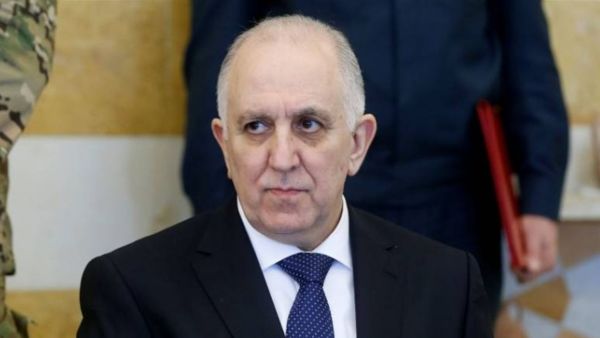The Lebanese minister of interior has sparked a strong online backlash after confessing to killing two men in 1981 during the Lebanese Civil War and having enjoyed protection by the current Lebanese President Michel Aoun, who was one of the war's lords.
Watch: #Lebanon's President Michel Aoun protected the now Minister of Interior Mohamed Fahmi after he killed two men during the Lebanese Civil War, the minister says in a TV interview shared online this week.https://t.co/VXH9d1epZi pic.twitter.com/IA7ezozO0U
— Al Arabiya English (@AlArabiya_Eng) June 28, 2020
The Lebanese minister of interior and municipalities Mohammed Fahmi, who is a retired general of the Lebanese army, was a guest on a talk show that was aired live on Hezbollah's official Al Manar TV, when he was asked about his close relationship with the Lebanese President.
يعني قبل التحيه نرجو توضيح في قتيلان ونحكي بلموضوع عادي واحد حمي شخص قاتل شخصين شو الأسباب وبعد وقت من مرور الزمن منشوف واحد صار رئيس وواحد صار وزير شو هيدا
— Roula Ali Abedulkarim Ali Merhabi (@RoulaElAli3) June 27, 2020
Translation: "Before you salute him we deserve a clarification! He killed two people and he's casually talking about it. We're talking about a man protecting a murderer. Why did he kill them? and after all those years one of them has become a president and the other is a minister?"
To answer the question, Fahmi recounted a 1981 incident in which he "had killed two men during the civil war," saying that upon telling Michel Aoun shortly after it, Aoun had promised to protect the former from being persecuted and kept his promise, which is the main reason the relationship between the two military men is so strong today.
Fahmy didn't elaborate any further as to his position during the killing incident, neither did he explain whether the two men he killed at that time were militants or civilians.
#Lebanon 's minister of interior admits he killed two people but was protected from a powerful militia by the then army chief president Michele Aoun- this came as he sought to explain the "spiritual" relation between them #chosenbymerit #LebanonProtests #لبنان__ينتفض pic.twitter.com/euSMN8Sm2b
— Maha Yahya (@mahamyahya) June 27, 2020
Responding to the minister's revelations, Lebanese social media exploded with anger at politicians who "see nothing wrong in talking about how they protected each other despite crimes they committed amid the 15-years long civil war."
Some social media commentators also pointed the "former warlords' alliances must have led to the corruption and nepotism in governments formed since the end of the war in 1990," arguing that mass protests taking place since October 2019 aim to oust those politicians.
They also discussed a 1991 law that has acquitted all militant groups taking part in the 15-years long civil war from being legally persecuted for crimes committed during the war, which is why the minister didn't hesitate to tell the story live on TV, knowing that no legal action can be taken against him.
Not now or ever is it acceptable or comprehensible to reminisce over crimes committed, allegiances and political immunity received from parties responsible for the Lebanese civil war, and above all being promoted to minister of interior in a “technocratic independent” government https://t.co/n2kDs58teh
— Mia Atoui (@MiaAtoui) June 28, 2020
#Lebanon ‘s parliament passed an amnesty law in 1991 pardoning “political” crimes committed during15 yr civil war. Some of those responsible for crimes sit in top offices. Here context is lacking-MOF was an army officer then. Did this happen during battle? Side altercation? Etc.
— Maha Yahya (@mahamyahya) June 28, 2020
Mohammad Fahmy joined the Lebanese government last January following months-long protests demanding a technocratic government tasked with ending "decades of political and economic corruption."
He was performing his duty, stop misleading the people!!!!! Listen to the whole interview then come and speak!!!! Ignorant people
— soumaya (@soumayahamaty) June 28, 2020
For months now, Lebanon has been enduring one of the hardest economic crises in its history, especially as unemployment rates keep spiking while the Lebanese Lira continues to collapse, losing more than 60% of its value.
Lebanon is run by the mafia in the very true sense of the word.
— Bianca (@Pjhhkllnbvcghn) June 28, 2020
Lebanese immigrants can love Lebanon, but should never say they are proud as Lebanese until we have decent people running this country. pic.twitter.com/0qwKT6LDZ8







